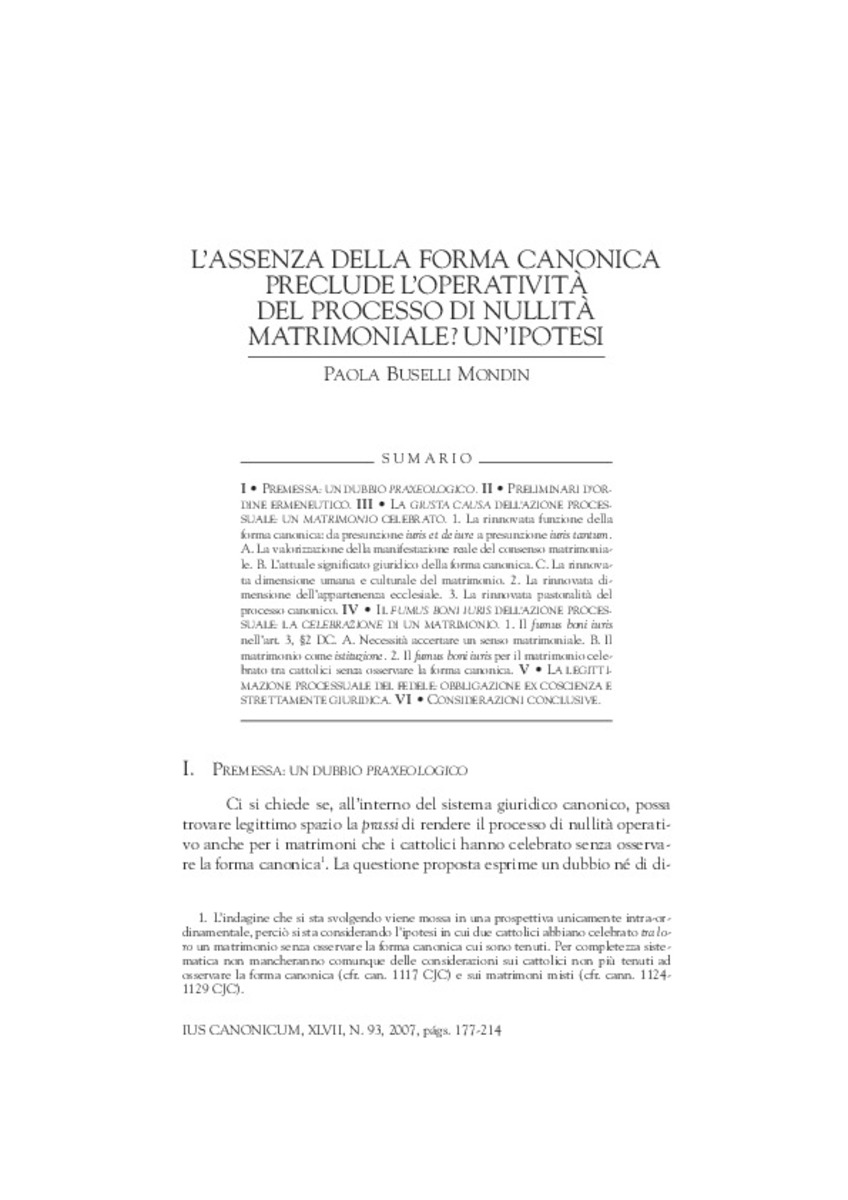L'assenza della forma canonica preclude l'operatività del processo di nullità matrimoniale? Un'ipotesi
Files in This Item:
Statistics and impact
Items in Dadun are protected by copyright, with all rights reserved, unless otherwise indicated.







